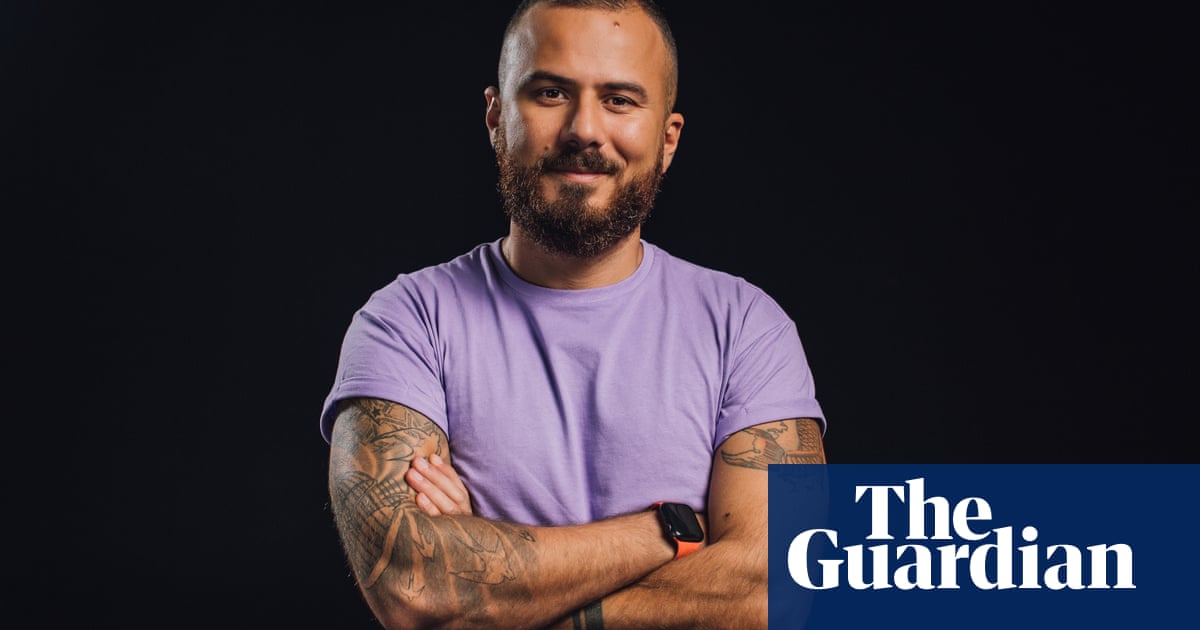A moment that changed me: I thought I’d find paradise in Canada – instead I got a drunk who calle... - 5 minutes read

Danny Ramadan … ‘I brought my own list of of traumatic experiences to Canada, hidden like sleeping crocodiles in muddy water.’ Photograph: Supplied A moment that changed me A moment that changed me: I thought I’d find paradise in Canada – instead I got a drunk who called me Aladdin After two years as a queer Syrian refugee in Lebanon, I was happy to escape the homophobia of the Middle East. But I hadn’t reckoned on the racism of the west
The guard’s name was Michael, which in Lebanese Arabic is pronounced Michelle. He stopped our car at a military checkpoint on the highway to Hariri airport, on that day in 2014 when I made my final trip out of Beirut. “Why are you going to the airport?” asked Michael, as he examined my Syrian passport, flipping its pages too fast to read. His M16 rifle rested on his shoulder. His military uniform had never felt the touch of an iron.
A couple of hours later, I sat on a crowded plane heading to that promised land. My life was changing – I just didn’t know it yet. Over the next nine months, the stress of being an immigrant would get to me. I would lose more than a quarter of my weight, self-medicate with weed, alcohol and party drugs, and finally crash and burn out.
I had a beautiful, albeit naive idea of what my life would be like in Canada. After two years of being a queer Syrian refugee in Lebanon, I thought everything would just fall into place. The usual images of queer joy in the west filled my head: Pride parades; boys holding hands over hot beverages in cutesy cafes. I had been sponsored through a Canada-specific initiative called the Private Sponsorship of Refugees Program: a group of Canadian citizens, most of whom were older white men, joined forces to submit an application to their government requesting my safe delivery to Canada. I thought I would be instantly loved and protected – and that, finally, I would be safe.
My assumption was similar to the one made by Michael, the Lebanese guard. I believed that having shaken off the shackles of homophobia in the Middle East, I would be welcomed to the land of milk and honey, and doors would open. I would be the writer I always wanted to be. I would have the out-of-the-closet queer life I had always dreamed of. Looking back, it was silly – as if I were expecting an agent with a contract to be waiting for me at the airport, and a queue of cute boys to take me on romantic dates.
Trauma, it seems, is not luggage you can leave behind at Beirut’s airport. When I arrived in Canada, I brought my own list of traumatic experiences. They were hidden, like sleeping crocodiles in muddy water: a complicated family history of abandonment and rejection, the years I lived in fear due to my sexual orientation, a brief arrest by the Syrian authorities because of my activism in the LGBTQ+ community, and two years of living as a refugee in Lebanon – surrounded by homophobia, xenophobia and the possibility of being sent back to the civil war zone in my homeland.
Most importantly, I had to learn to navigate a concept new to me: racism. I grew up as part of the mainstream racial identity of Syria, a privilege I didn’t realise was mine until I moved to Canada and became a racial minority. That combined with my accented English and my refugee background, and I was flooded with micro-aggressions, limitations to my prospects in the job market, assumptions about my character and – worst of all – pity.
When I talk about this change, I feel as if I have to defend myself. The agreed narrative here is that Syria is bad, while Canada is good. This is an oversimplification. Syria can be bad, but it is also the place in which I grew up, with the language I had spoken since I was a child. It is my chosen family and friends, the first tree I ever climbed and the first boy I ever kissed. Canada can be good, but it is also new and confusing, with a history of colonisation and racism. It is a place where I couldn’t find work for a year, and where I faced discrimination based on the colour of my skin.
I silently collected the booklets, and left her office. I hurried to the bathroom and locked the door. In the mirror, I could see the dark circles under my eyes. I lifted my T-shirt and I could count my ribs. I thought I was hiding my anxiety attacks well and that weed was calming me down. Instead, it was clear that I needed help.
Seven years later, I am married and have friends who came to my wedding, and babysit my dog when I travel for a book tour. If you looked at me now, you wouldn’t be able to see the hidden hurt boy who arrived in Canada eight years ago. I am here, though. I never leave. I sit back and watch as I balance on a tightrope between being a Syrian and being a Canadian.
Source: The Guardian
Powered by NewsAPI.org